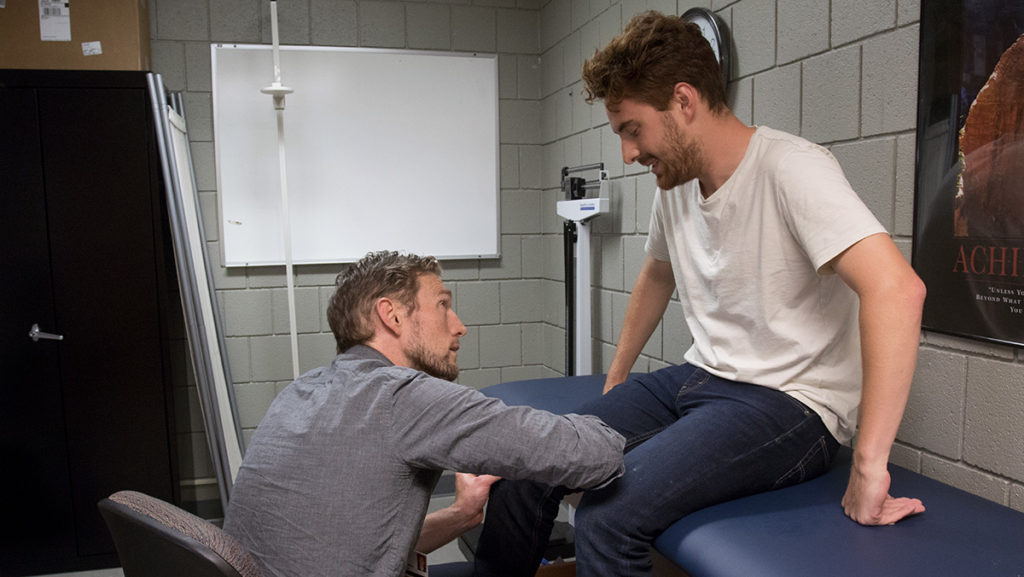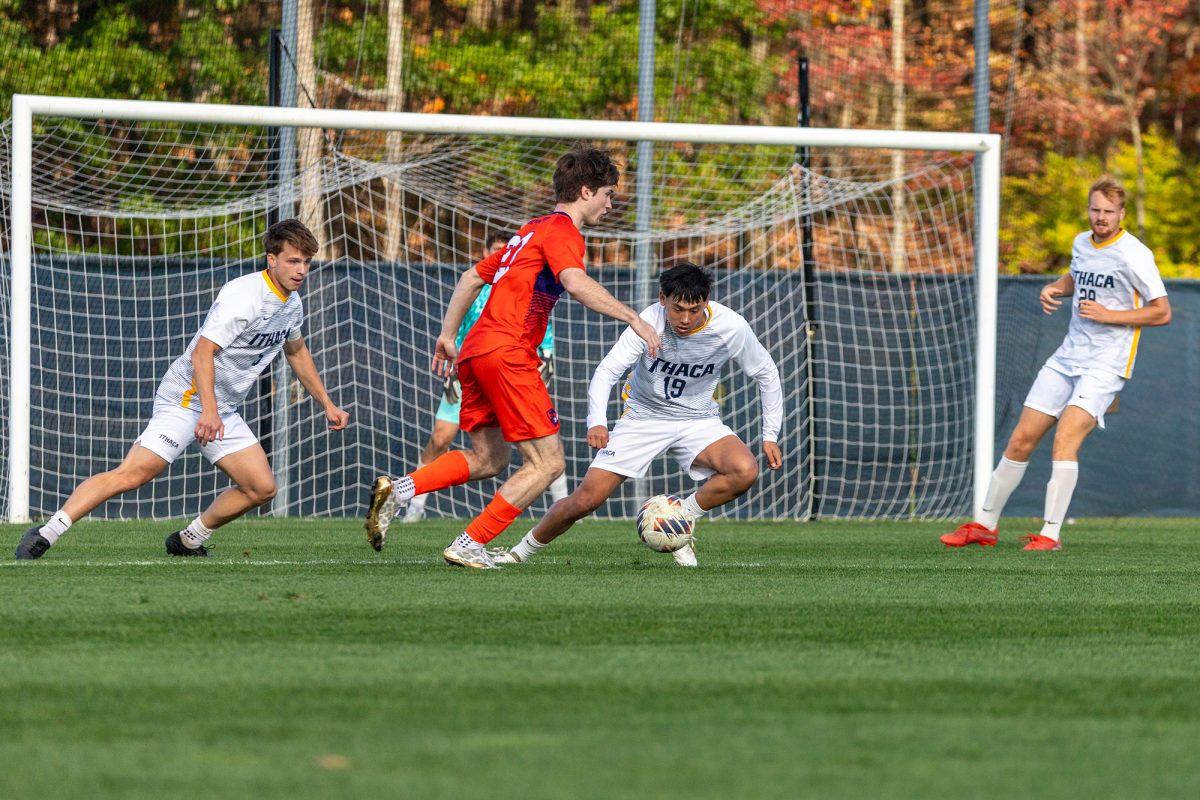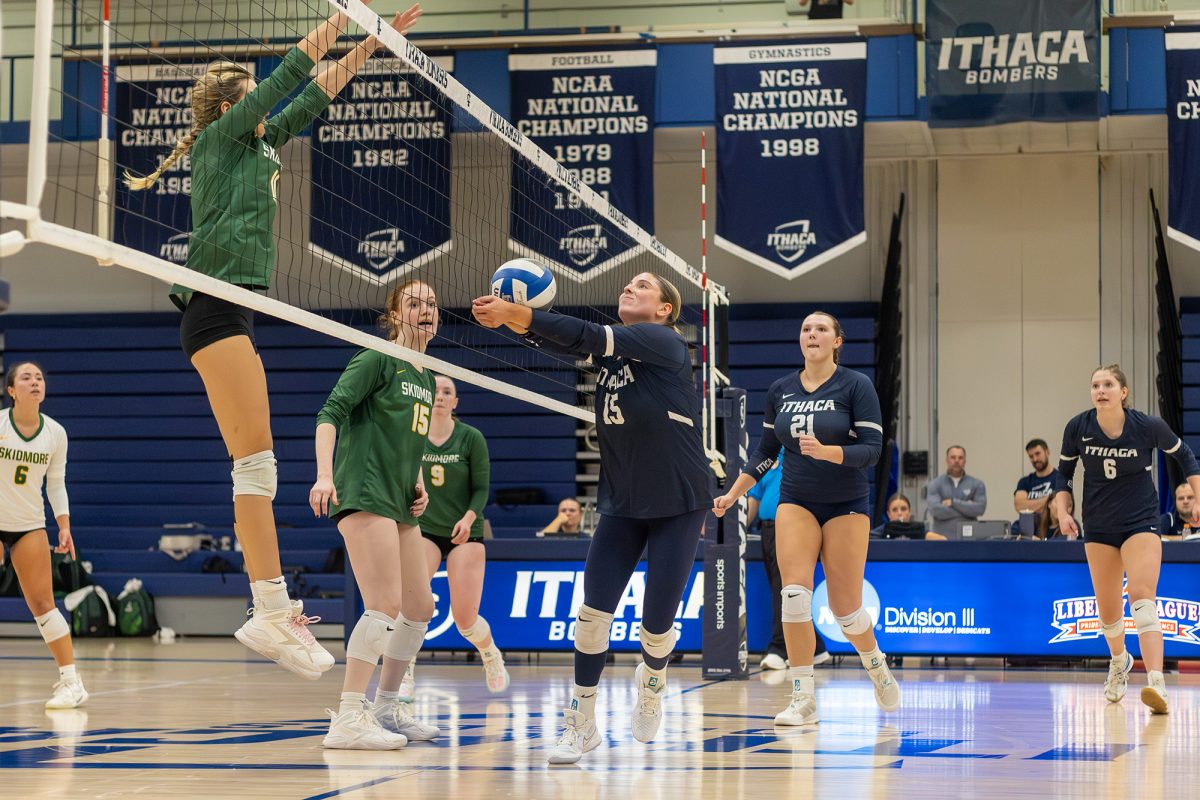As of this semester, Ithaca College club-sports teams have received access to athletic trainers, which were previously only available to varsity athletes.
Athletic trainers work with physicians to diagnose injuries, provide rehabilitation, oversee injury prevention and offer additional services, including ankle wrapping, icing and blood-pressure reading. They are now available for all club athletes on Mondays, Wednesdays and Fridays from 4 to 6 p.m. in the Fitness Center. Trainers are also available before, during and after home games.
The clinic was brought to the college by the Cayuga Medical Center, which has been a longtime partner with the college. For many years, Cayuga Medical Center has staffed the Hammond Health Center with its own physicians and provided medical coverage for the college’s intercollegiate sports. Brad Buchanan, the assistant director of recreational sports at the college, approached Cayuga Medical Center about expanding medical coverage to club sports for this year.
Adrian Western, the practice manager of sports medicine and athletic performance at Cayuga Medical Center, said he and Buchanan saw a need to provide the best possible medical care to all the college’s athletes, regardless of their competition level.
“Ultimately, this partnership helps safeguard athletes from the potential negative consequences of injury and helps them to compete at the highest possible level,” Western said.
Junior athletic training major Jamie Albrecht, a member of the college’s women’s club-soccer and club-swim team, said there are many perks to having athletic trainers available to club athletes.
“Now we can get the treatment we couldn’t get before,” Albrecht said. “It shows how the focus on health is going up. Everyone I’ve talked to on different club teams loves it.”
The clinic can be especially helpful for teams with high impact and a high risk of injury, such as the rugby team.
Junior rugby player Kevin Zeosky said he imagines the clinic will help the team.
“We get a lot of injured players throughout the year, and some of the injuries could be prevented before they get worse,” Zeosky said.
President of the volleyball club Eric Finkelstein said the clinic helps the respective officers of the club feel more in control of an injury situation.
“Before, the options were to wait until the Health Center opened the next day or go to the emergency room,” Finkelstein said.
Western said students have been very appreciative of the care that Cayuga Medical Center is providing and the fact that they have experts keeping student-athletes safe. The center is trying to get as much feedback as possible from the athletes and administration to see how the athletic training coverage can grow.
“Our hope is that we will be able to foster this relationship and expand services to meet the needs of the recreational student-athletes at Ithaca College,” Western said.














